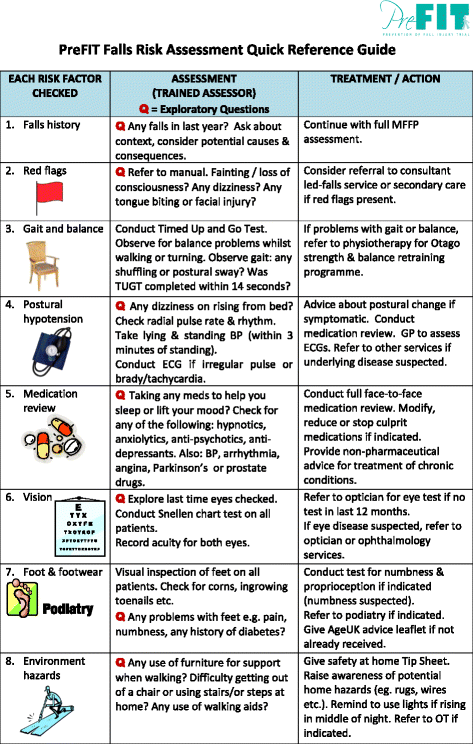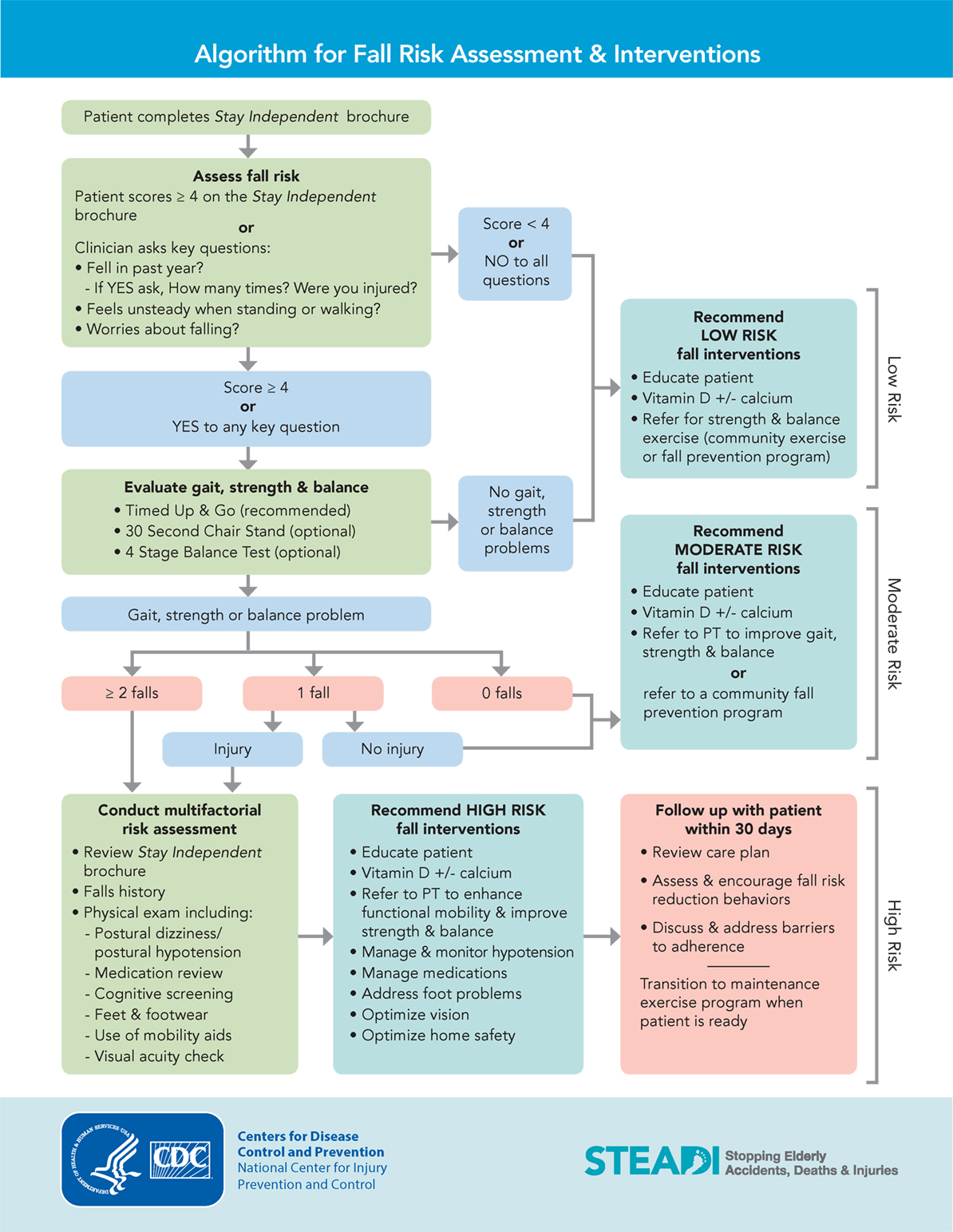The Definitive Guide to Dementia Fall Risk
The Definitive Guide to Dementia Fall Risk
Blog Article
Our Dementia Fall Risk Ideas
Table of ContentsDementia Fall Risk - TruthsGetting My Dementia Fall Risk To WorkNot known Details About Dementia Fall Risk About Dementia Fall RiskDementia Fall Risk Can Be Fun For Everyone
The FRAT has three areas: fall danger standing, risk variable checklist, and activity strategy. An Autumn Danger Standing consists of information concerning history of recent drops, drugs, emotional and cognitive status of the person - Dementia Fall Risk.If the patient scores on a risk factor, the matching variety of factors are counted to the individual's loss danger rating in package to the much appropriate. If a patient's fall threat score completes five or higher, the individual is at high danger for falls. If the client scores just 4 points or lower, they are still at some risk of dropping, and the registered nurse needs to utilize their ideal professional evaluation to handle all fall danger elements as part of a holistic treatment plan.
These conventional methods, in general, help create a risk-free setting that decreases accidental falls and defines core preventative actions for all clients. Indications are important for people at risk for drops.
The Buzz on Dementia Fall Risk
For instance, wristbands should include the patient's last and very first name, day of birth, and NHS number in the UK. Details ought to be printed/written in black versus a white history. Just red color ought to be utilized to signify special client standing. These referrals follow current developments in individual identification (Sevdalis et al., 2009).
Products that are too much may call for the person to get to out or ambulate unnecessarily and can possibly be a threat or contribute to drops. Aids stop the client from going out of bed with no help. Nurses respond to fallers' call lights quicker than they do to lights initiated by non-fallers.
Visual impairment can considerably trigger falls. Maintaining the beds closer to the floor lowers the threat of falls and major injury. Putting the cushion on the flooring significantly reduces fall risk in some healthcare setups.
Dementia Fall Risk Can Be Fun For Anyone
Patients who are high and with weak leg muscle mass who attempt to remain on the bed from a standing placement are likely to fall onto the bed due to the fact that it's too low for them to decrease themselves securely. Also, if a tall patient attempts to get up from a reduced bed without help, the patient is likely to fall back down onto the bed or miss out on the bed and drop onto the flooring.
They're made to promote timely rescue, not to avoid falls from bed. Aside from bed alarm systems, boosted supervision for risky individuals additionally may help prevent falls.

People with a shuffling gait boost fall chances significantly. To decrease loss risk, shoes must be with a little to no heel, thin soles with slip-resistant walk, and support the ankles. Encourage person to make use of nonskid socks to avoid the feet from moving upon standing. Encourage individuals to wear ideal, well-fitting shoesnot nonskid socks for ambulation.
The Facts About Dementia Fall Risk Uncovered
Individuals, specifically older grownups, have minimized visual ability. Lights an unfamiliar atmosphere helps enhance presence if the person need find to stand up at night. In a research, homes with ample lights record fewer falls (Ramulu et al., 2021). Enhancement in lights in your home might minimize fall prices in older adults (Dementia Fall Risk). Making use of stride belts by all healthcare service providers can promote safety when helping individuals with transfers from bed to chair.

Sitters are effective for guaranteeing a safe and secure, safeguarded, and secure atmosphere. Nonetheless, researches showed very low-certainty evidence that caretakers lower loss threat in intense treatment hospitals and just moderate-certainty that options like video clip surveillance can lower sitter usage without increasing autumn risk, suggesting that sitters are not as valuable as originally click to find out more thought (Greely et al., 2020).
7 Simple Techniques For Dementia Fall Risk

Enhanced physical fitness reduces the danger for drops Visit This Link and limits injury that is suffered when loss takes place. Land and water-based workout programs may be likewise helpful on balance and stride and therefore decrease the risk for drops. Water workout may contribute a favorable advantage on balance and gait for women 65 years and older.
Chair Surge Exercise is a simple sit-to-stand workout that helps enhance the muscle mass in the thighs and buttocks and boosts movement and independence. The goal is to do Chair Rise exercises without making use of hands as the client ends up being stronger. See sources area for a comprehensive instruction on how to carry out Chair Surge exercise.
Report this page